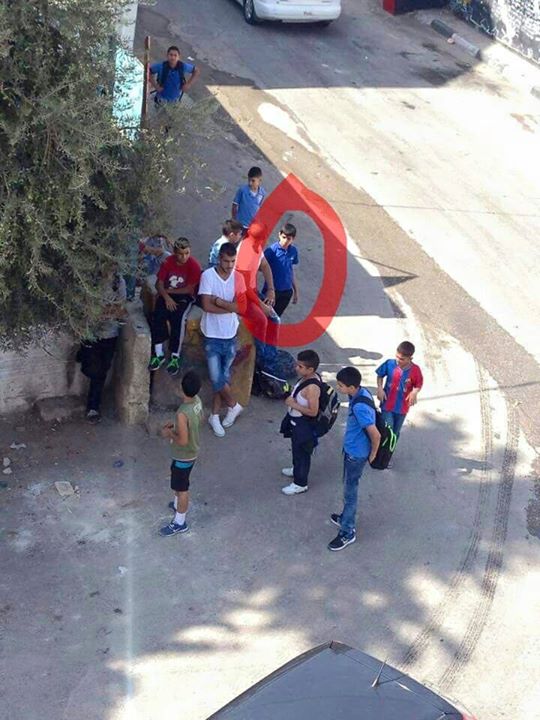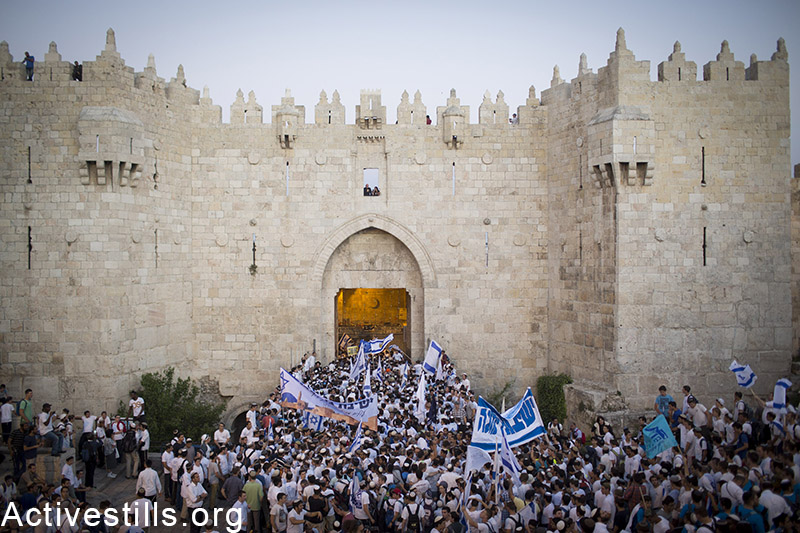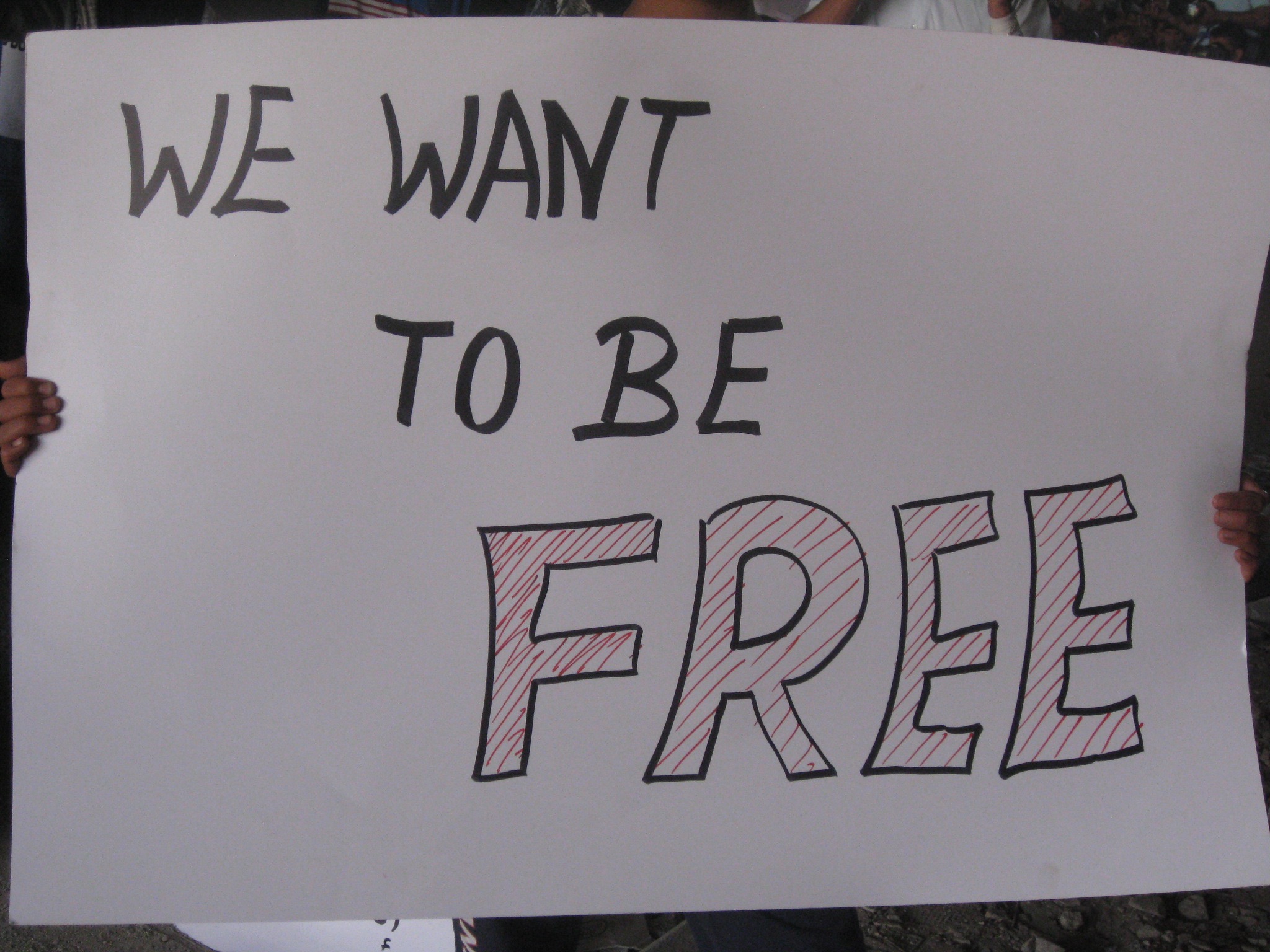Tag: Jerusalem
-
12 year old Palestinian killed in Bethlehem as violence explodes across the West Bank
5th October 2015 | International Solidarity Movement, Al-Khalil team | West Bank, occupied Palestine Abed al-Rahman Shadi Obeidallah, 12 was still in his school uniform when he was rushed in a civilian car to Beit Jala hospital from Aida refugee camp in Bethlehem today. The boy, from from a Al Kahder village, was shot in the…
-
Jerusalem Day: Palestinians met with extreme violence
On Sunday 17th May 2015, I witnessed some of the most violent and painfully blatant acts of Apartheid since my time in Palestine. I went to Al Quds for the annual ´Jerusalem Day´, to document the racist chants, commonly known to occur. ‘Jerusalem Day’, or ‘Yom Yerushalayim’ is a zionist celebration of the 6 day…
-
Open the gate, bring down the wall!
08th May 2015 | International Solidarity Movement, Al Khalil Team | Al-Zaim, Occupied Palestine The villagers of Al-Zaim held their third demonstration today in front of the gate in the apartheid wall that separates them from East Jerusalem. Peaceful demonstrators were met by a large number of occupation forces and agreement was eventually reached to…



